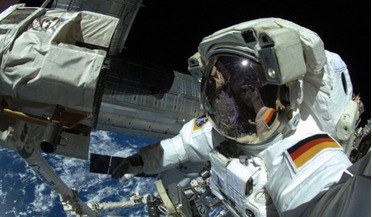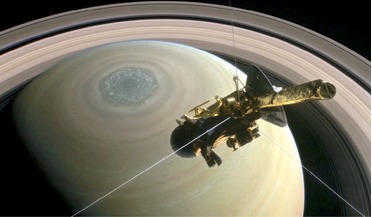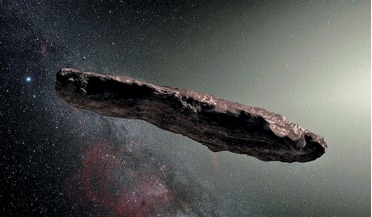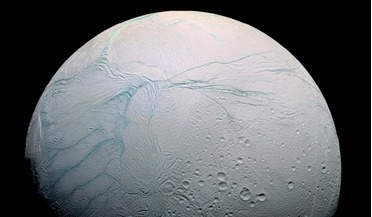 August 2016
International cooperation drives Germany’s space ambitions
August 2016
International cooperation drives Germany’s space ambitions
... to Earth. In addition to exploring asteroids, DLR is also participating in various missions to the outer and inner planets of the Solar System. The high-performance HRSC (High Resolution Stereo Camera) on board the Mars Express spacecraft has been...
 October 2017
Cassini observations open up Saturn’s atmosphere
October 2017
Cassini observations open up Saturn’s atmosphere
... prospect as to whether we’ll see further evidence of such polygonal waves and polar cyclones on the other giants of our solar system. Planet-encircling storms Many of the north-south contrasts that we saw at the start of Cassini’s mission have...
 January 2018
Shielding the human genome
January 2018
Shielding the human genome
... facing manned space missions beyond Earth. Could cosmic radiation’s check on the human dream to explore the solar system and beyond be overturned? Could a biological solution be found to this most basic of biological threats? To the members of the...
 June 2018
Cosmic communications and the anthropology of outer space
June 2018
Cosmic communications and the anthropology of outer space
...suitable for the development of intelligent life FP = The fraction of those stars with planetary systems NE = The number of planets, per solar system, with an environment suitable for life. FL = The fraction of suitable planets on which life actually...
 October 2018
Looking for life on Enceladus with IceMole
October 2018
Looking for life on Enceladus with IceMole
... a small icy moon of Saturn, is currently seen as one of the prime candidates for hosting microbial life in the solar system as it appears to fulfill the basic requirements for it hosting life: a subglacial ocean in the liquid state that is in direct...
 November 2018
How many people does it take to colonise an exoplanet?
November 2018
How many people does it take to colonise an exoplanet?
...orbiting around a sun-like star beyond our own solar system: 51 Pegasi b. For the first time, speculation... visit it ourselves, or will we forever remain prisoners of our own solar system with its single life-bearing world? For those of us who want ...